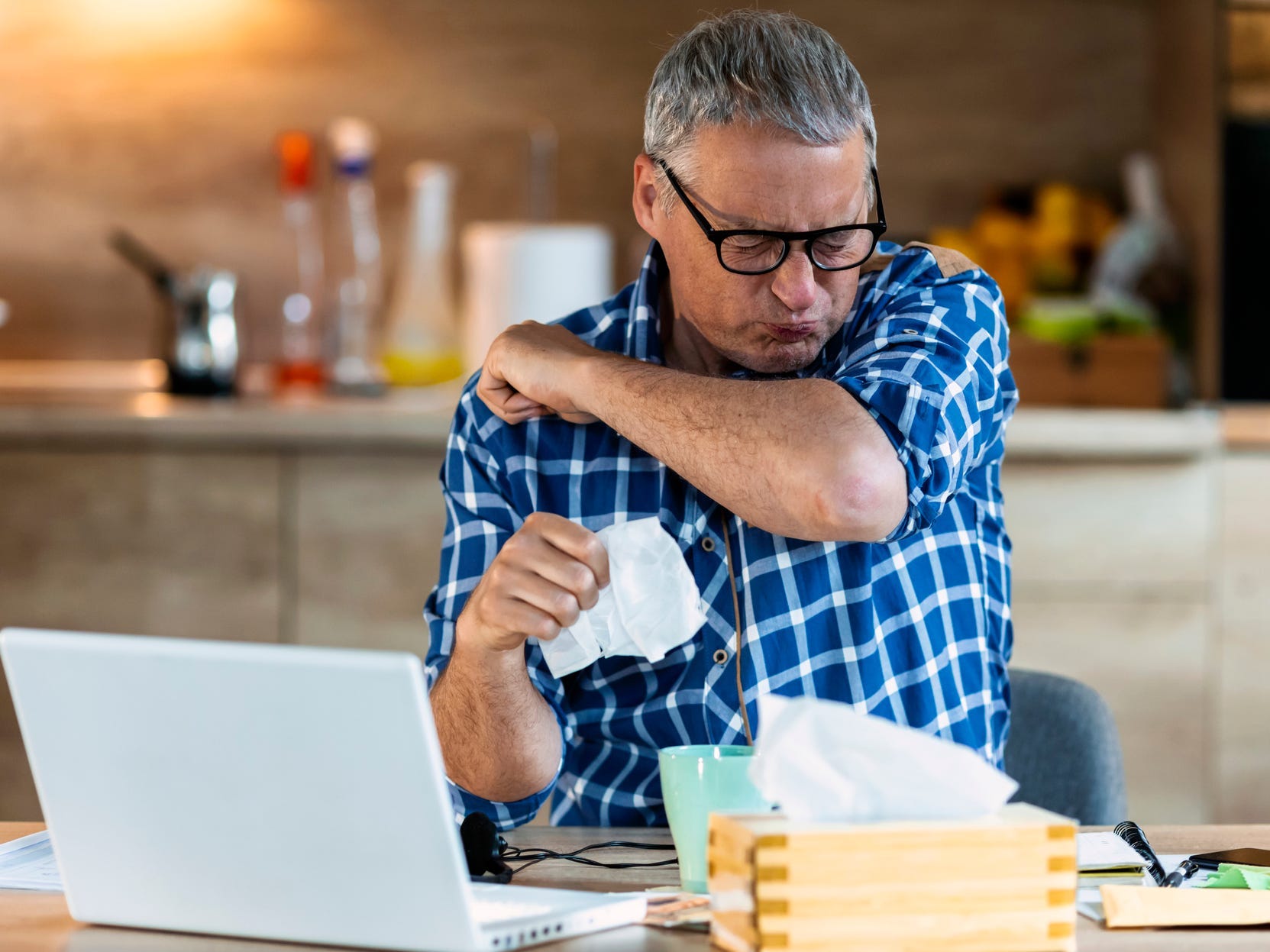- It’s common practice to cover a cough or sneeze with an elbow to avoid spreading germs. But research suggests that only helps if you’re wearing long sleeves.
- Without sleeves to form a seal, there’s nothing to stifle that cough or sneeze from dispersing germs, a new study found.
- Experts recommend using a tissue, which you can throw out after, or simply wearing a mask properly, as the best way to prevent germs from spreading.
- Visit Insider’s homepage for more stories.
Most of us have parked a wayward cough or sneeze into an elbow as a last-ditch effort to avoid sharing germs with bystanders. But that may not be an effective way to block viral particles.
Unless you’re wearing sleeves, coughing into your elbow does little to stop germs from spreading, according to a study published August 25 in Physics of Fluids.
While studying how coughs can spread viral particles through the air, researchers found that without sleeves, your elbow doesn’t form enough of a seal to stop airflow, allowing the cough or sneeze to eject particles through many small gaps and into the surrounding air.
Similarly, covering your mouth with one or both hands to block a sneeze also leaves ample space for small germ-filled particles to escape, the researchers found.
A handkerchief in your hand can provide some protection, as can a loose sleeve, according to the research.
But that can also present a problem if you're using an elbow bump to replace a handshake, according to Dr. Lee Riley, a professor and Chair of the Division of Infectious Disease and Vaccinology at UC Berkeley, since you've just deposited a load of germs onto your elbow before offering it to your friends or loved ones.
"It's probably not a good way to greet each other," he told Insider.
A properly worn mask, even a cloth or disposable one, can help prevent a cough from traveling, limiting particle spread to just half a meter, compared to uncovered cough which can disperse particles for up to 3 meters, according to the study.
The most hygienic way to avoid germ-dusting your elbows or the atmosphere is even more simple, according to Miryam Wahrman, a biology professor at William Paterson University and the author of "The Hand Book: Surviving in a Germ-Filled World."
"Sneeze into a tissue. Then dispose of it properly," she said.
Read more:
